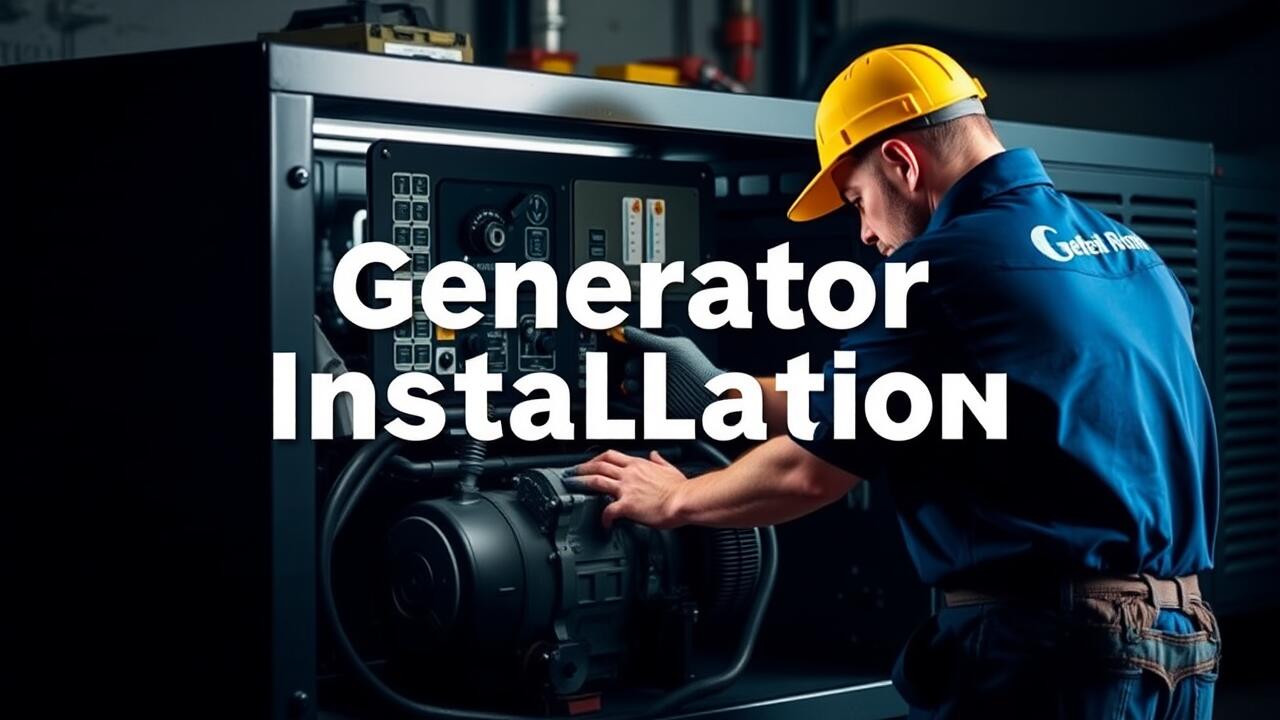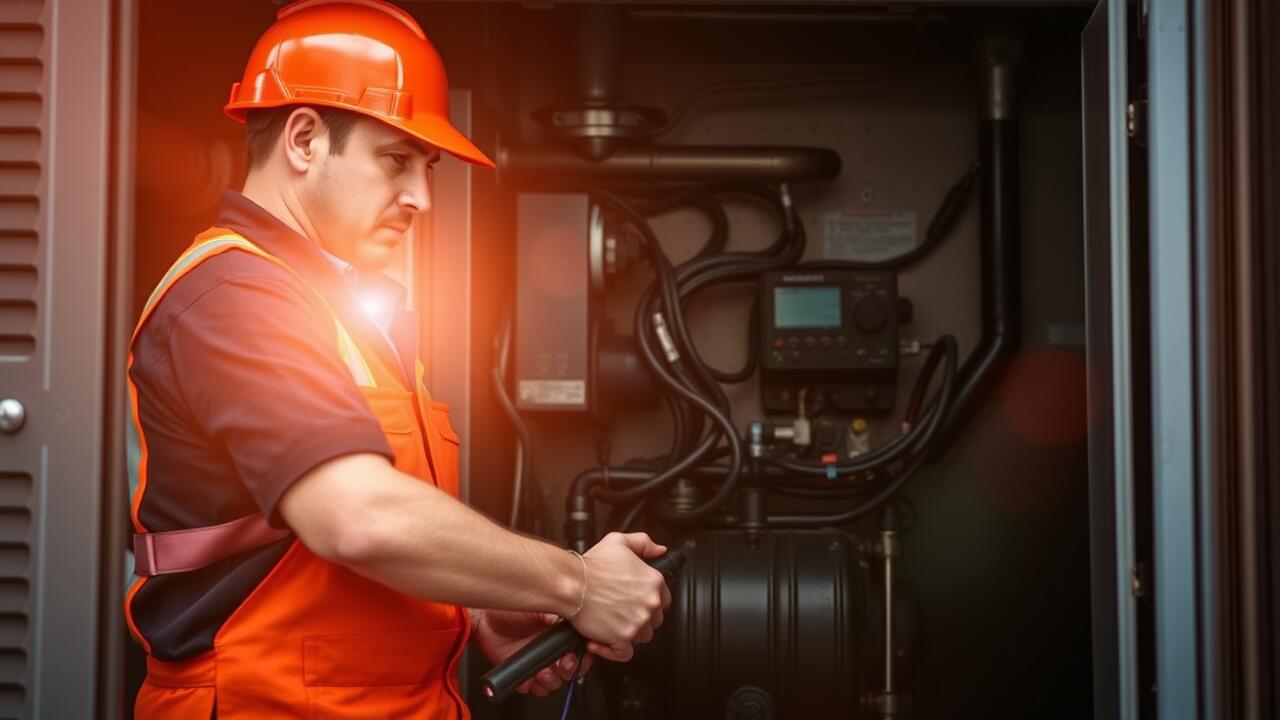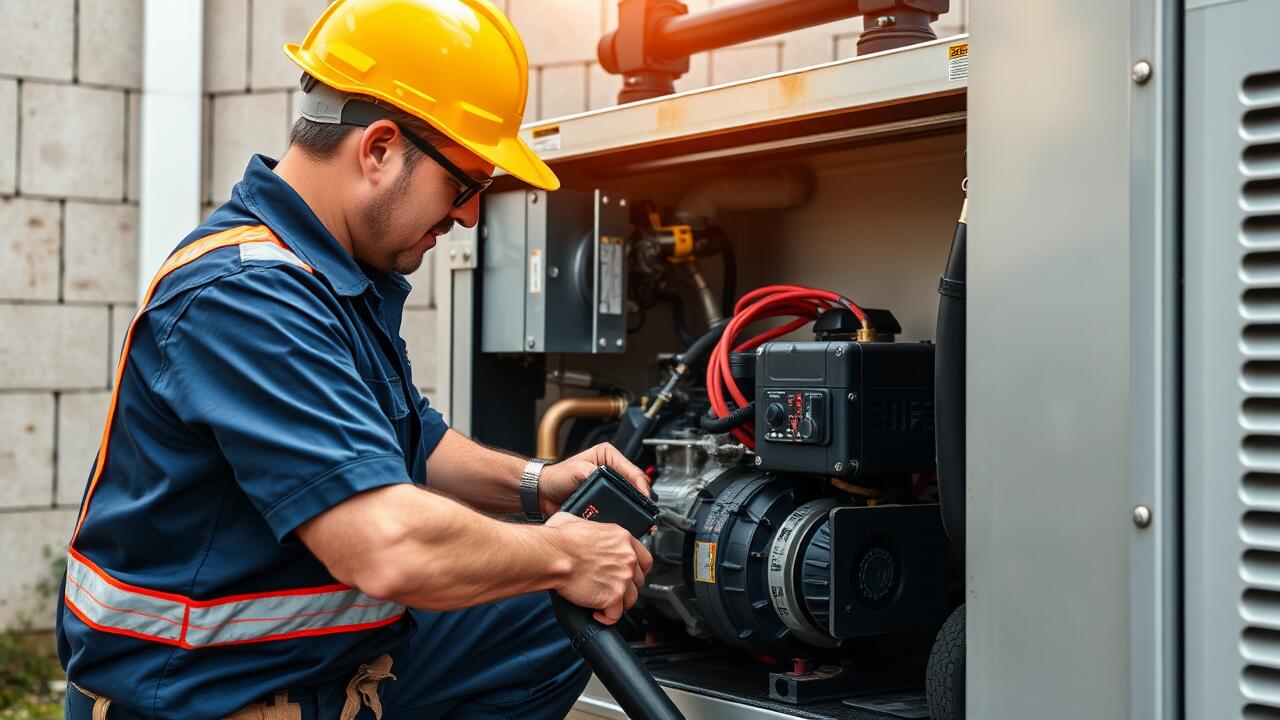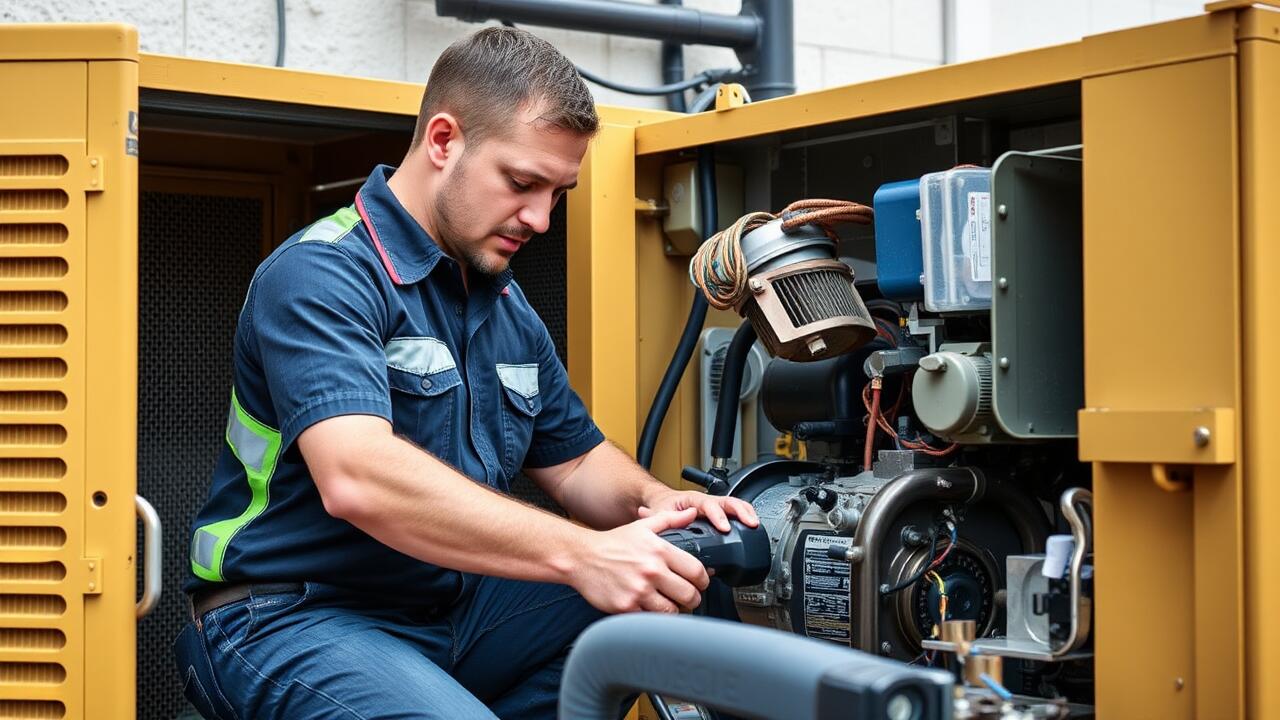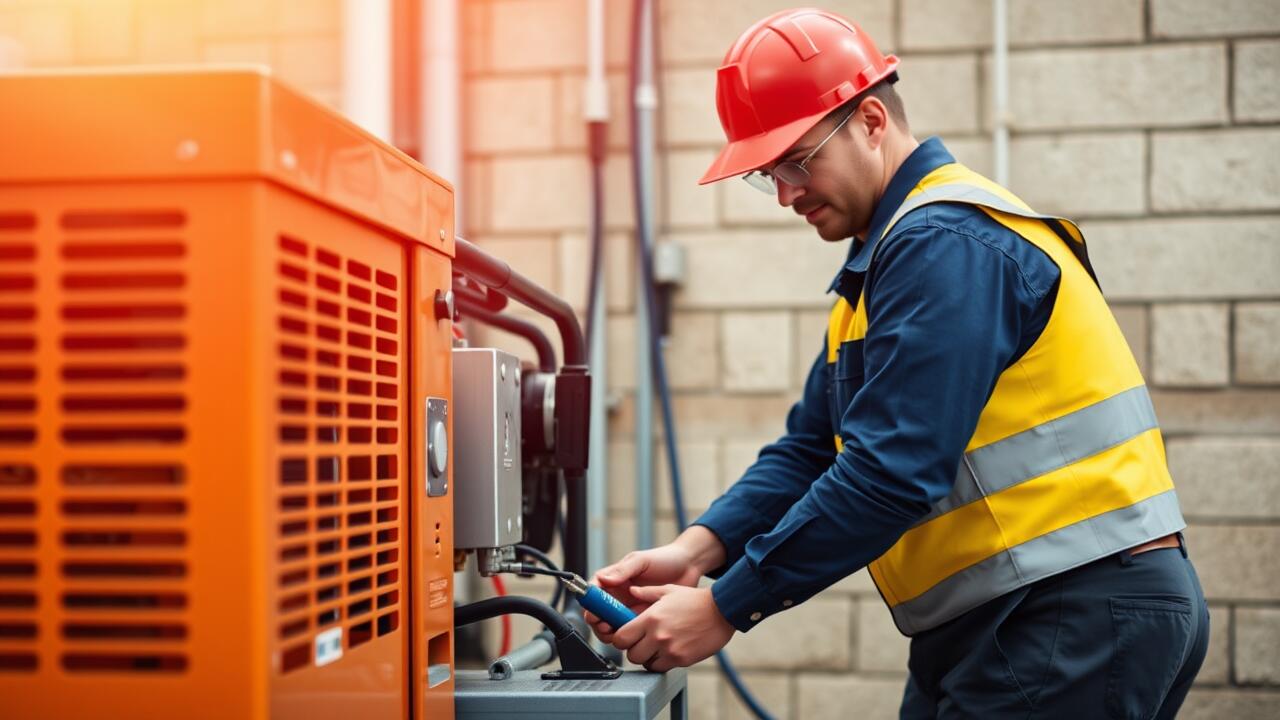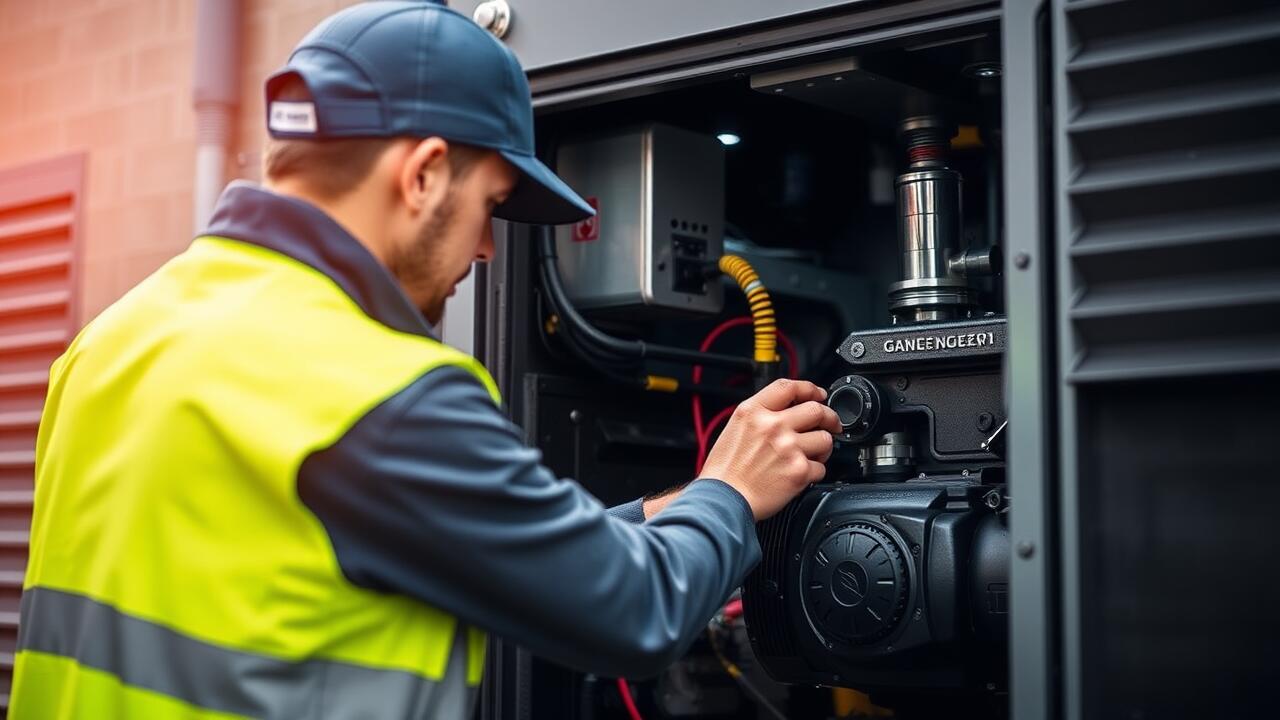
Choosing the Right Location for Your Generator
Choosing the right location for your generator is crucial to ensure its effectiveness and longevity. It's important to select a space that is both accessible for maintenance and provides adequate ventilation. Generators need to discharge exhaust gases safely, which means they should be placed away from doors, windows, and air intakes. If you're planning for Generator Installation in River Oaks, Houston, consider local regulations and the landscape, as the area may experience specific weather conditions that can affect the generator's performance.
Additionally, proximity to your home’s electrical system is a key factor in placement. A generator placed too far from the main service panel can lead to complications during installation and may increase costs. Ensure the location has a stable, level surface to support the generator and consider potential noise impact on your living space and neighbors. Professional advice from experienced installers can further guide the optimal positioning for efficiency and compliance with local codes.
Factors to Consider for Placement
When thinking about the placement of a generator, accessibility is crucial. It should be positioned in a location that allows easy access for maintenance and fuel supply. Additionally, consider the noise level when choosing a site; placing the generator farther from living spaces can minimize disturbances. Safety is another essential aspect, ensuring that the unit is not too close to flammable materials or structures.
Another important factor is the generator's proximity to electrical connections. Electrical codes may dictate specific distances from walls, windows, or utility lines. For residents seeking Generator Installation in Greenspoint, Houston, local regulations should be reviewed to avoid any compliance issues. Elevating the generator above ground level can help prevent water damage in flood-prone areas, adding another layer of protection for your investment.
The Role of an Electrician in Installation
Hiring a qualified electrician is essential for the safe and effective installation of a generator. An electrician possesses the expertise to assess your home’s electrical system and determine the best location for the generator, ensuring all safety codes are met. They can also guide you through the various options available, helping you select the right size and type of generator that suits your specific needs. In areas like Greenspoint, Houston, this experience is invaluable due to the unique power demands of the region.
The installation process involves complex electrical connections that must adhere to local regulations. An electrician will handle the necessary wiring and integration with your household power system, minimizing risks such as overloading or short circuits. Through professional Generator Installation in Greenspoint, Houston, you can trust that your generator will operate efficiently and safely, providing a reliable power source during outages. Plus, a professional installation may help preserve your warranty and ensure compliance with any local ordinances governing generator use.
Electrical Connections and Safety
Proper wiring is crucial for ensuring that a generator operates safely and effectively. The electrical connections must be installed according to the local building codes and manufacturer guidelines. This requires careful planning and execution to prevent hazards such as overloads or shorts. Ensuring that all connections are secure and using the right gauge wires are just some of the measures that need to be taken seriously. Generator Installation in Spring Branch West, Houston, typically involves a thorough review of the property’s electrical system, ensuring compatibility with the generator.
Safety switches, such as transfer switches, play an important role in generator installation. These switches help to prevent back-feeding into the utility lines, which can be dangerous for both utility workers and your home. Additionally, proper grounding of the generator protects the equipment and minimizes risks during operation. Service professionals often emphasize the need for compliance with safety regulations and industry standards during the installation process to safeguard both the property and its occupants.
Maintenance Considerations After Installation
Routine maintenance is essential for ensuring the optimal performance and longevity of a generator. After Generator Installation in Greenspoint, Houston, owners should conduct regular checks on various components, including the battery, fuel levels, and oil filters. Keeping an eye on these elements helps identify potential issues before they escalate into major problems. Additionally, it is advisable to periodically test the generator by running it under load to ensure it operates as expected during a power outage.
Scheduling professional maintenance services also plays a crucial role in generator upkeep. Technicians can perform more in-depth inspections and services that go beyond routine checks. They can clean internal components, assess the electrical connections, and verify the overall functionality of the system. By investing in both routine and professional maintenance, generator owners can enhance reliability and reduce the risk of unexpected failures when the generator is needed most.
Routine Checks and Services
Regular maintenance is essential for the longevity and efficiency of a generator. After generator installation in River Oaks, Houston, homeowners should establish a routine for checking key components. This includes inspecting the oil levels, examining the air filters, and ensuring that the battery is charged. Noticing any irregular sounds or performance issues early can prevent costly repairs. Identifying potential problems before they escalate can help maintain the reliability of your generator.
In addition to routine checks, scheduling annual professional servicing is crucial. An electrician can conduct a thorough inspection to evaluate the electrical connections and overall system functionality. This comprehensive service can include testing the switchgear and assessing the fuel system. By prioritizing these regular assessments, homeowners can ensure their generator remains a dependable source of backup power, especially during outages common in the region.
FAQS
Who is qualified to install a generator?
A qualified electrician or a licensed contractor with experience in generator installations should perform the installation to ensure safety and compliance with local codes.
What factors should I consider when choosing a location for my generator?
Consider factors such as proximity to the electrical panel, ventilation, accessibility for maintenance, and complying with local regulations regarding placement.
Can I install a generator myself?
While it may be possible for someone with electrical expertise to install a generator themselves, it is highly recommended to hire a professional to ensure proper installation and safety.
How do I know if my electrical system is compatible with a generator?
An electrician can assess your electrical system's compatibility by evaluating your current wiring, panel capacity, and power requirements for the generator.
What maintenance is required after a generator installation?
Regular maintenance includes routine checks, servicing the engine, testing the battery, and ensuring the electrical connections remain secure to keep the generator in good working order.
